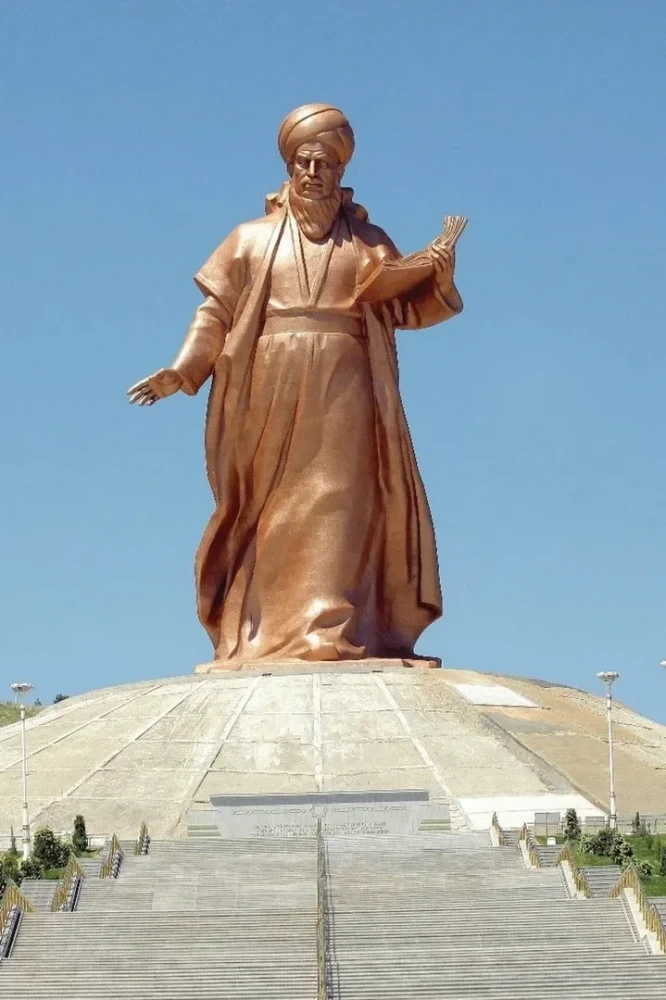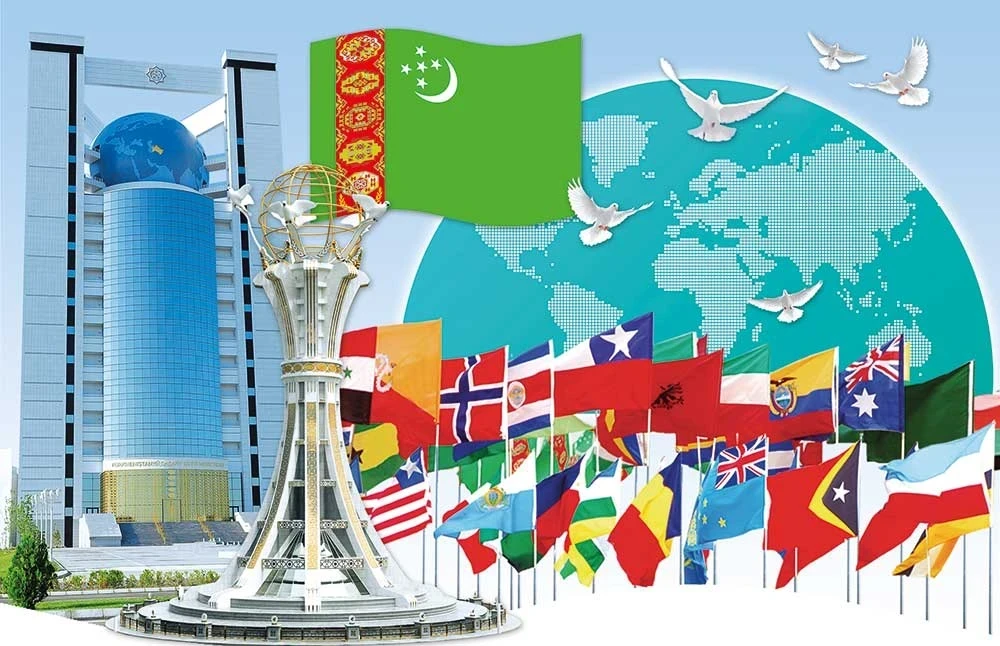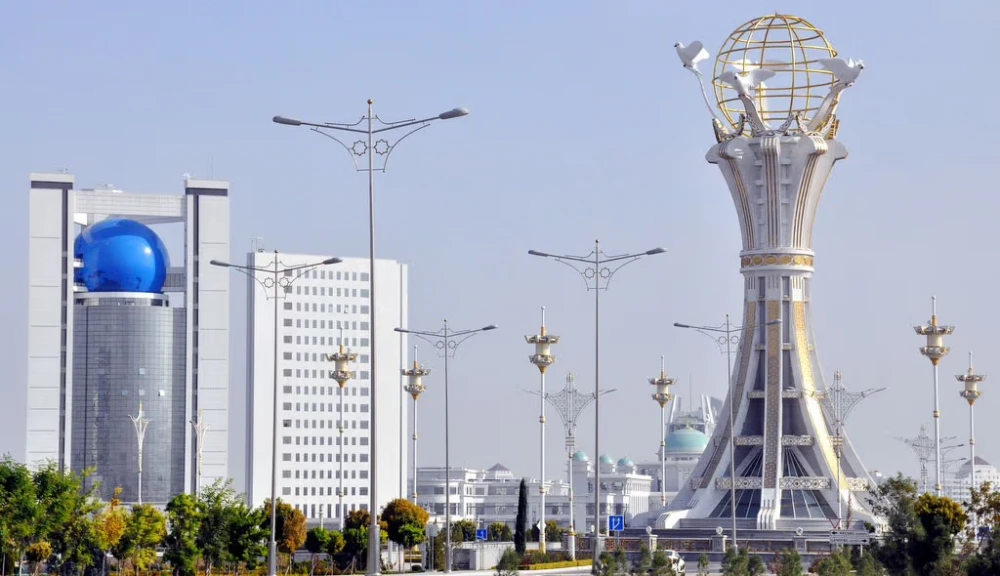
21/05/2025
2084
Magtymguly Fragi — The Great Poet and Philosopher of the Turkmen People
Magtymguly Fragi (circa 1724–1807) was a prominent 18th-century poet, philosopher,
and public figure, regarded as the founder of the classical Turkmen literature. His works had a
profound influence on the development of the Turkmen literary language, national identity, and
cultural consciousness. Magtymguly was born in the family of the renowned scholar and poet
Dowletmammet Azady. He received his early education from his father and later continued his
studies at various Madrasahs across Central Asia, including in Bukhara and Khiva. He studied
religious sciences, philosophy, astronomy, and literature, all of which deeply shaped his
worldview and creativity.
Magtymguly chose to write in the Turkmen language at a time when most poets wrote in
Persian or Arabic. This was a groundbreaking step. His poetry is simple in form but profound in
meaning. He eloquently expressed the feelings of the people, writing about love, justice, human
dignity, unity, and the desire for national independence.
Magtymguly envisioned the unity of Turkmen tribes and the formation of a strong,
independent state. His poems often criticize greed, injustice, and intertribal conflicts. He
promoted moral integrity, brotherhood, and spiritual growth through his works.
His works have become a spiritual treasure of the Turkmen people. Magtymguly’s poems were
passed down orally, performed by folk musicians (called bagshy), and are still widely read and
respected today. His legacy is taught in schools and universities across Turkmenistan.
Many universities, streets, and cultural institutions are named in his honor. In 2024, a 60-
meter monument and cultural park dedicated to Magtymguly Fragi were unveiled in Ashgabat.
His poetry has been translated into dozens of languages around the world.
Magtymguly was not only a poet but also a spiritual leader who used words to call his people
toward unity, justice, and goodness. His legacy continues to live on and inspire future
generations.
The Turkmen people have an ancient national heritage and literature. The work of
Magtymguly, a prominent representative of our classical literature, inspires the human soul. Our
grandfather Magtymguly was a poet who lived in the 18th century, who made a great
contribution to the improvement of Turkmen classical literature, and did a great work in the
development the Turkmen literary language. The works of the great poet Fragi is truly an ocean.
Our grandfather Magtymguly left in his memory words, advice and instructions, the value of
which cannot be measured by anything. To this day, many scientific views on the poet’s literary
heritage have been expressed and books published. Magtymguly shows the greatness of the
Turkmen with his greatness.
Celebrating the 300th anniversary of the birth of our great thinker Magtymguly at such a
high level is closely related to the fact that our Hero Arkadag highly values the work of the great
thinker. The great love of our people for Fragi originates in the great soul and deep work of our
Hero Arkadag and Hero Arkadagly Serdar. Under the leadership of our Hero Arkadag and
Arkadagly Serdar, a lot of work is being done to study the life and work of the great poet. Highly
appreciating that Magtymguly Fragi is a master of artistic expression, our Hero Arkadag says:
“Magtymguly is a great thinker and poet, whose name has reigned in the world of poetry with the
power of the word”.
We sincerely wish Hero Arkadag and Arkadagly Serdar, who surrounded the literary heritage of
the Turkmen people with great attention and care, opened a wide path for the ideas of Turkmen
scientists about Magtymguly, sound health, long life and success in all their undertakings for
sake of Turkmen state, people and humanity.
Oguljahan JOBBOROWA,
the 4th year student of the Faculty of International Law of the
Institute of International Relations of the
Ministry of Foreign Affairs of Turkmenistan.


